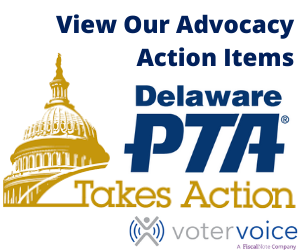Dover – As Delaware introduces a new state test this spring, the Department of Education (DOE) is proposing to request a further delay the federal requirement that educator evaluations use results from these assessments. Last year, DOE requested and obtained a delay for the test’s first year, recognizing the challenges of switching to Smarter Balanced – a more thorough assessment aligned to the Common Core college and career ready standards. The proposal to the U.S. Department of Education (U.S. DOE) will be considered by the State Board of Education (SBOE) on Thursday.
Several legislators – including the chairs of the House and Senate Education Committee, as well as Senator Bryan Townsend, Representative Sean Lynn, and Representative Kim Williams – had recently engaged with the Department about this issue and received a commitment last week that the Administration would engage the federal government about an extension. Education Secretary Mark Murphy announced today that, with the required approval of the State Board of Education, he would request that the U.S. Department of Education allow the state to continue the delay for one more year. U.S. DOE must approve this request to ensure that none of Delaware’s federal education funding is put at risk.
“We have been listening to feedback from many of our stakeholders, including our teachers and state representatives, on this important issue, and we will make this request on their behalf,” said Murphy. “We are committed to working with all of them to ensure that Smarter Balanced is a valuable tool to support educators and their students.Moving forward, we will be able to effectively use results from the test during these delay years to prepare for future educator evaluations.”
Growth on the state assessment is used as one of multiple ways to measure student progress in English Language Arts and Math – the two subjects in which the test is offered. Student growth, using multiple measures, is one of five components of an educator’s evaluation, with the other four based on observations of their practice in the classroom.
“While we have received a lot of positive feedback from educators about the new test and the state’s implementation of Common Core, it was also clear that the debate about teacher evaluations was distracting us from getting those things right,” said Sen. David Sokola, Chair of the Senate Education Committee. “A two-year delay should allay teacher concerns and ensure that they have enough time to get comfortable with the test before it is used in any evaluations. I urge the U.S. Department of Education to grant our state’s request.”
“Recently, the entire membership of the House Education Committee agreed to ask for this one-year stay to be included in Delaware’s ESEA waiver request,” said Rep. Earl Jaques, who chairs the House Education Committee. “I have concerns about scores from a new test being part of the teachers’ evaluation system, and I trust that the Federal DOE will understand our concerns and allow us to proceed with this process at a pace that best benefits Delaware teachers, students and families.”
“Fully and fairly implementing a new set of standards and new corresponding assessment takes time,” said Sen. Bryan Townsend, a member of the Senate Education Committee. “This is not easy work, and a one-year extension gives us more opportunity to confirm how successful the implementation has been and what other adjustments we need to make.”
“Delaware is sending a message to the federal government that using scores from a new standardized test to grade teachers needs to be examined and implemented very carefully,” said Rep. Sean Lynn, a member of the House Education Committee and a former teacher. “I’m pleased that the administration heard our case and agreed with our position.”
Governor Markell highlighted the significance of the move to Smarter Balanced during a news conference last week when he announced a statewide effort to reduce the total amount of testing at the state, district, and individual school levels.
“Smarter Balanced is also a better test than anything we’ve used before. For the first time, we will be testing critical thinking and writing ability – two of the most important skills our students will need to succeed in their futures – instead of asking our students to just fill in multiple-choice bubbles,” said Markell.
“Make no mistake that these tests will be more difficult than their predecessors, but they will more fairly measure students’ progress toward college and career. That’s critical when half of our college-bound students need to pass remedial classes before they can take college-level courses. Students should be prepared for their next steps before they graduate. They shouldn’t be told they are ready, only to find out after the fact that they weren’t.”
Smarter Balanced will be given only once a year, and will take less total time than DCAS, the state’s previous assessment, which was offered up to 3 times a year for a total of 12 to 15 hours. While Smarter Balanced is more thorough, it will still cut total testing time by up to seven hours and it will take well under one percent of school hours per year.




